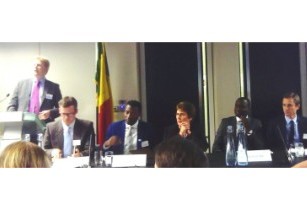At the launch of the Senegal-UK Chamber of Commerce, held this week in London, two panellists were optimistic about easy resolution in regard to the maritime border between Senegal and Mauritania where significant gas discoveries have been made
Significant gas discoveries have been made off the coasts of Senegal and Mauritania, while offshore oil discoveries could prove an additional boon to the Senegalese economy.
When asked by Oil Review Africa about the progress of cooperation in relation to oil and gas discoveries which straddle the two West African countries, Martin Roberts, principal analyst, IHS Markit and Babacar Ka, principal, Development Partners International were largely positive about relations.
Mr Roberts said that the size of the gas discovery should "ease bilateral relations", even if relations between the two countries had sometimes been "frosty and tense in the past". However, such a large discovery would be something for both countries to "get their teeth into", he told guests at the launch. He said that Senegal was aiming to go into "major production" of its hydrocarbons reserves by 2021.
Mr Ka said that relations between Senegal and Mauritania were "always good" and sharing the development of the offshore reserves "will improve an already good and stable relationship".
HE Professor CA Dieng, Senegalese ambassador to the UK, named oil and gas discoveries as one of the major attractions for companies looking to Senegal as an investment destination.
"The new discoveries will boost strong industry [and have] a multiplying effect on the economy," Professor Dieng said. In particular, he said that gas reserves will be predominantly used for the LNG market and paid tribute to BP for their work in developing the Senegalese gas industry.
Aliou Diallo, representing the Senegalese Embassy at the event, said the recent discoveries offered "a lot of opportunity" for Senegal, as well as British investors. He also cited BP as a pioneer by creating an industry around oil and gas development, with opportunities for other companies to enter the Senegalese market in sectors such as training and services.
Mr Ka said that while Development Partners International had not yet delved into the Senegalese hydrocarbons market, the organisation had taken up similar opportunities in Nigeria and Ghana and was looking into replicating this in Senegal.
Julian Horn, development director, North and Francophone Africa, Lekela Power, works in the field of renewable energy in Senegal but reiterated the importance of developing oil and gas as a "complement to renewables because we need the energy mix", particularly as only around 57 per cent of people in Senegal have access to a reliable supply of energy.





